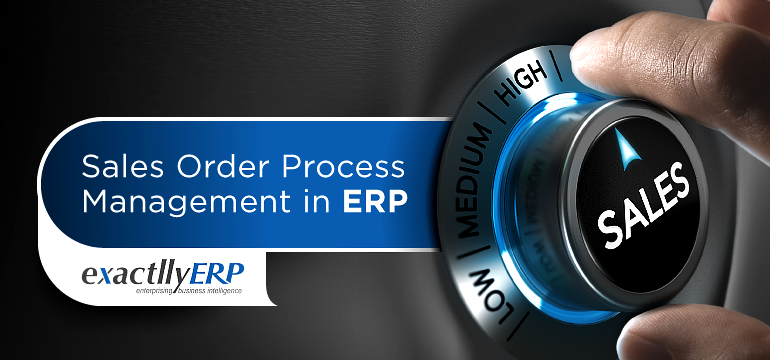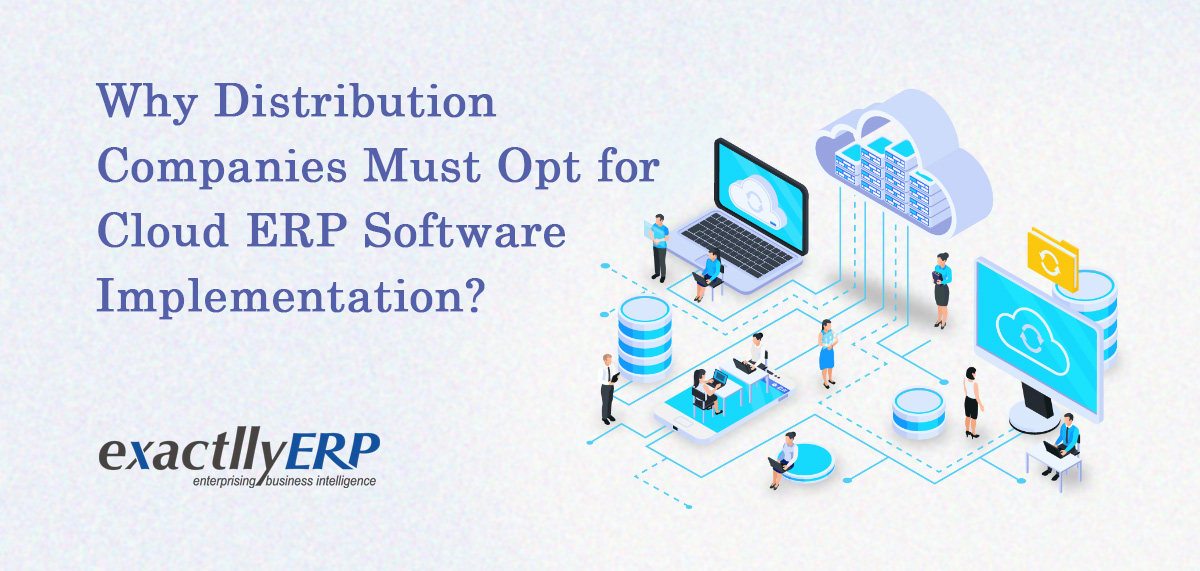Sales Order Process Management in ERP

A sales order is an official agreement between a business association and a sold-to party concerning the delivery of products or provision of services. It includes defined costs, item amounts, and conveyance dates.
Every timely delivered sales order establishes you as a trustworthy name in the market. When the number of sales orders starts soaring, it becomes challenging for traditional business applications to manage the load.
It is your basic responsibility for customers to deliver orders on time. Apart from that, the order delivery process should be smooth making it an exciting experience for customers to deal with you.
An organized order management process is indicative of your operational efficiency, minimizes inventory load and saves both time and money. All this is possible to achieve with the implementation of an ERP solution.
The Role of ERP:
A typical order begins through the generation of the purchase order of the customer by the sales team with data variables like customer number, product number, order size, delivery dates etc.
This information is processed through an ERP order management solution and order entry is created. With this begins a chain of automated events to allow order process monitoring and control.
Every department in the organization is alerted about the order so that they can collectively work in real-time to timely process the order.
-
Sales Order Processing –
Order processing is the most important function in order management. As soon as the sales order is generated, resource allocation begins to procure raw materials from inventory stock. ERP implementation is a very vital process in sales order processing.
The order then reaches the production stage and is well-guided through ERP solution till the end of the assembly line. The order consequently reaches the packaging and shipping department. Here, it is processed for packing with a custom label and bar code on top of it. Exactlly Software is one of the best HRMS software in Kolkata.
Finally, when the sales order is ready for dispatch to customers, the automated invoice is generated taking into consideration freight charges and taxes.
Therefore, the whole process is automated because every department can track the order progress in real-time and schedule their tasks accordingly.
In case there are multiple business units catering to a single order, a centralized order entry is created that can be tracked by all business units. It liberates employees from the burden of excessive communication resulting in loss of time.
Furthermore, it prevents unwarranted confusion about the sales order. Besides your employees, the order progress can be tracked by customers and vendors. ERP is also enabled to prioritize orders in line with production assembly, delivery schedule and urgent orders.
-
Customer Data Processing –
Customer specifications, needs and demands vary extensively. Customer variables may include address, terms and conditions specific to the customer, pricing, credit limit etc. Customer data processing is one of the most important, so you have to rely on the best ERP software in Kolkata to avail of this with ease.
However, ERP software is fully capable to deal with these disparities. Every detail is accurately processed during sales order processing.
-
Data Analytics –
The order management system allows you to analyze and generate a report to track the efficiency of the business in processing orders. It enables you to identify flaws across the organization that resulted in sales order delays. Cloud based ERP software is one of the most common features.
Such issues may be related to manpower efficiency, product packaging, flawed assembly line, order backlogs, order returns etc. Hence, it enables you to suggest process improvements and remove glitches.
Manage Your Orders Effectively with ERP:
ERP system integrates your sales, finance, inventory and production department. It helps to maintain inventory levels, manage sales returns, and keeps a track of payment and delivery status.
Moreover, it helps to improve sales visibility and order processing efficiency. Feel free to Contact Us and get a Free Demo.






